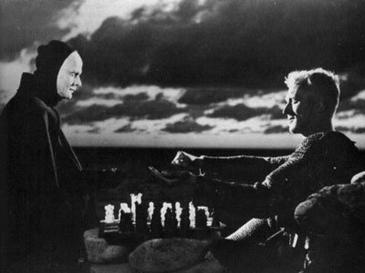
"It's all emptiness." These are the words of the Acrobat in Ingmar Bergman's 1957 film "The Seventh Seal." What is the Acrobat talking about? Death. He has already seen one person die without reason, and he has already seen a woman, accused of being a witch, being prepared for burning at the stake. He has already seen life turned inside out.
Yet he has also encountered great love and affection and joy, a joi de vivre that causes him to treasure every moment of being alive.
Nonetheless, regardless of what has happened while we live, when we die, as far as the Acrobat is concerned, we encounter only emptiness. Nothing but a vast and unyielding emptiness. An eternal emptiness.
At another point in the film, the Knight asks Death (with whom he engages in a chess match), what will happen when Death finally comes for him. Having just returned from the Middle East to a Europe in the grip of the Black Death, he cannot fathom the idea of people dying into an unremitting void, emptiness replete.
"You ask too many questions," Death replies. Perhaps. Given the disconnect between his experiences of war and suffering and the joys that he now experiences as civilian life, however, maybe the Knight is right to wonder why. Why must such joy, and pain, only end in emptiness?
Because, Death subsequently implies, that's just how it is. But why do we, like the Knight, nonetheless so fervently long otherwise? Maybe there really is more to us, and the world, than what we now see.
No comments:
Post a Comment